TAIPEI, Nov. 16, 2021 /PRNewswire/ -- Executed by Taiwan Design Research Institute (TDRI), the "Fictional Garden: Taiwan House" Japan Tour was held from October 2 to November 7, 2021, successively at Good Design Marunouchi in Tokyo and The Terminal KYOTO in Kyoto, featuring exciting exhibition and six thematic seminars that took both Taiwan and Japan by storm.
For the full multimedia release, click here: https://www.prnasia.com/mnr/TDRI_202111.shtml
Since 2019, the COVID-19 pandemic has spread across the world, pressing the pause button on all economic activities and exchanges, and bringing enormous impacts on the world. Nonetheless, during this erratic period, Taiwan and Japan have demonstrated a more resilient and stronger bond. In addition to showing political and diplomatic support, Japan has also made six separate donations of vaccines to Taiwan, furthering manifesting the close ties between Taiwan and Japan.
For this reason, the cultural and design sectors in Taiwan and Japan have planned numerous activities to facilitate bilateral exchange, among which "Fictional Garden: Taiwan House" was one of the most important cultural exchanges between Taiwan and Japan, as well as the warm-up event of the "Taiwan Now" series of activities to be launched in Tokyo, Japan.
Main Spirits: Discover the Cultural Content and Design Status underneath the Unique Charm of "Taiwan Design"
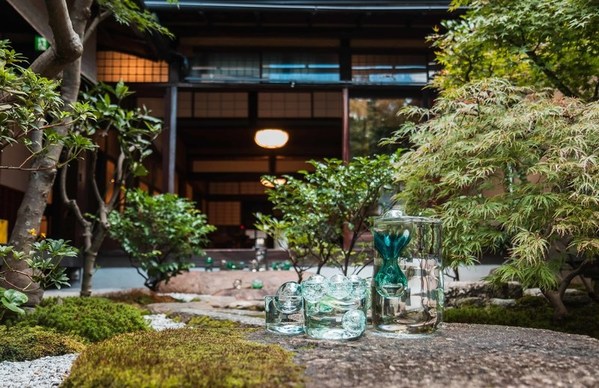
The exhibition invited 8 Taiwanese creative professionals from different disciplines to produce new creative works using sustainable materials
"Fictional Garden: Taiwan House" was jointly planned by consulting firm Plan b Inc. and Double-Grass that focuses on curatorial projects. Using flowers (hana in Japanese) as the theme, the exhibition not only passed on flowers and blessings symbolizing the friendship between Taiwan and Japan, but also showcased through flowers the splendid outcomes of the blooming Taiwan design, summing up Taiwan design's three main spirits of "resource integration," "social application," and "response to the time."
The exhibition invited 8 Taiwanese design teams and creative professionals in various disciplines, including Joe Fang Studio, PiliWu-Design, emerging craft designer Chang Chia-ling, floral designer Liao Hao-jhe, artist Mia Liu, graphic designer An Yen, and fashion brands Angus Chiang and Melted Potato, to create with sustainable materials of Spring Pool Glass and Miniwiz that strive for green projects, translating Taiwan's imagery of plantation and displaying the splendid fruits of Taiwan design's diverse cooperation.
The exhibition also selected 10 cases or exhibits of different topics, which included projects that displayed Taiwan's liberal system and culture and combined design with social issues, such as: Design Movement on Campus, Public Digital Space Division, Light Up Taiwan, and Go Grandriders; smart pandemic prevention ward and sustainable products that conveyed Taiwan's philosophy of circular sustainability and response to the time; Allrover that demonstrated Taiwanese industries' strengths in resource integration and innovation. These classic design cases showcased the diverse viewpoints of Taiwan design to jointly interpret Taiwan's unique landscape—the "Fictional Garden" that was free, thriving, and unbounded, and presented the current status of Taiwan's contemporary design.
Spatial Creativity: Display Taiwan's "Garden of the Future" - Fictional Garden
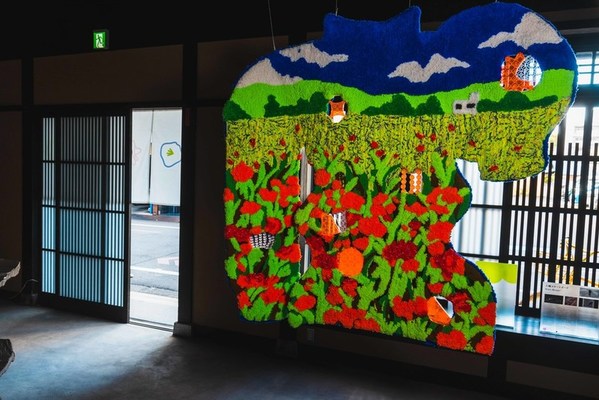
Taiwan's imagery of plantation are translated through design to display the current status of Taiwan's design ecosystem that is free, diverse, thriving, and unbounded.
The spatial design also used "flower" as the core concept, exploring what a garden that belonged to Taiwan would look like. Focusing on "circular materials," "industrial technology," and "traditional techniques," the space constructed display platforms symbolizing western Taiwan, the Central Mountain Range, and the East Rift Valley, showcasing works that echoed the plants and cultural patterns of the island's diverse climates. The space resembled our island, and was metaphor of Planet Earth that was a critical point of the accumulation of civilization and consumption of resources; would flexible, interdisciplinary, diverse, and free values blossom for our future?
Diverse Places: Displaying Cultural Fusion of Taiwan and Japan through different Exhibition Ambiences
With TDRI's long friendship with Japan Institute of Design Promotion (JDP), Taiwan House was able to make its first stop at GOOD DESIGN Marunouchi, at the heart of Tokyo near Tokyo Station. Works by Taiwanese designers were showcased at the modern, clean venue with large windows, giving Taiwan's Fictional Garden a refreshing and avant-garde ambience.
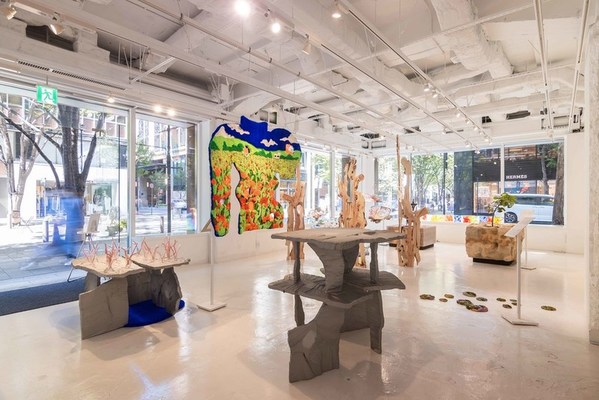
The exhibition made its first stop at GOOD DESIGN Marunouchi near Tokyo Station, displaying the look of "Taiwan's Garden of the Future – Fictional Garden."
The exhibition made its next stop at The Terminal Kyoto, a traditional Japanese "machiya" (wooden townhouse) with a history of nearly a century that was full of traditional cultural spirit and carried imprints of local lifestyle. The curator used the vocabulary of space, rearranging layout and constructing traffic flow, to manifest under the same framework of contents the tender and flexible, and adaptive and agile cultural qualities of Taiwan, giving Fictional Garden a brand new look.
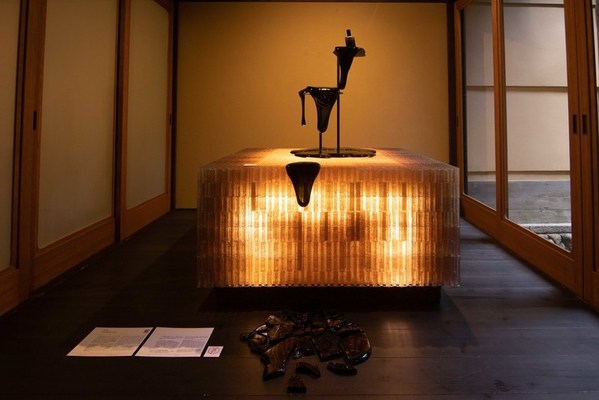
Works of creative professionals displayed at an ancient architecture in Kyoto to showcase the perfect cultural fusion of Taiwan and Japan.
Experience of All Sense: Perceive the "Island Scents" of Taiwan - Breath Taiwan
The fragrance that filled the exhibition space was the smell imprint of the treasure island of Taiwan reinterpreted by P.Seven Taiwan Tea Perfume founder Pan on the foundation of Taiwan's forest, temples, and tea culture. Also, this fragrance is designed to be the exclusive fragrance of Taoyuan International Airport Corporation, so when visitors arrive in Taiwan, they begin to breathe in this island every step they make. The fragrance allowed visitors of "Taiwan House" to breathe and feel the unique features of Taiwan design, leaving "profound impressions of Taiwan" through a unique experience of all senses.
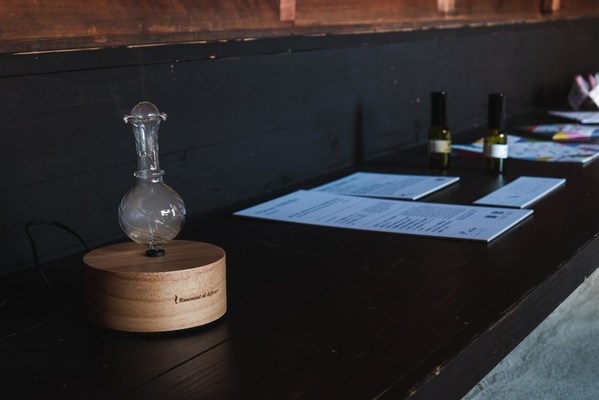
P.Seven Taiwan Tea Perfume is the exclusive fragrance of the exhibition, allowing visitors to also breathe in Taiwan in addition to perceiving the island through their eyes and ears.
In-depth Interaction: Further Excavate and Display the Current Status of Taiwan Design
Not only were there physical exhibitions of "Fictional Garden: Taiwan House" available in Tokyo and Kyoto, exciting Taiwan-Japan online forums were also planned in correspondence with the exhibition themes. The forums proposed six themes: #Social Innovation, #Sustainable Industry, #Public Design, #Regional Revitalization, #Old Building Revitalization, and #Co-Working Symbiosis. Through the perspective of design, and different viewpoints of Taiwan and Japan, the forums explored the relationship between citizens and social policies, how designers could drive industrial revitalization, how industries could strike a balance between development and environmental protection, and designers' mission and social influences, allowing participants from both sides to further understand cultural, industrial, social, and temporal demands and search for core values of future design and innovation, while also strengthening the friendship between Taiwan and Japan. The six forums attracted over 700 citizens from both Taiwan and Japan.
During the exhibition period, Taiwan Representative to Japan Frank Hsieh, Taipei Economic and Cultural Office in Osaka Deputy Director Chang Yung-hsien, Overseas Taiwanese in Kyoto Organization Executive Director Liu Chia-ling and Director Yang Bee-jing, and JIDA Chairperson Tachikawa Eisuke and former Chairperson Tanaka Kazuo, all visited "Fictional Garden: Taiwan House." According to feedback of Japanese citizens, this co-creative exhibition and exchange between Taiwan and Japan comprehensively displayed the development of Taiwan design in recent years, as well as the diverse and inclusive qualities of Taiwanese culture, allowing them to see works of Taiwan design that were unprecedented, innovative, and stunning.